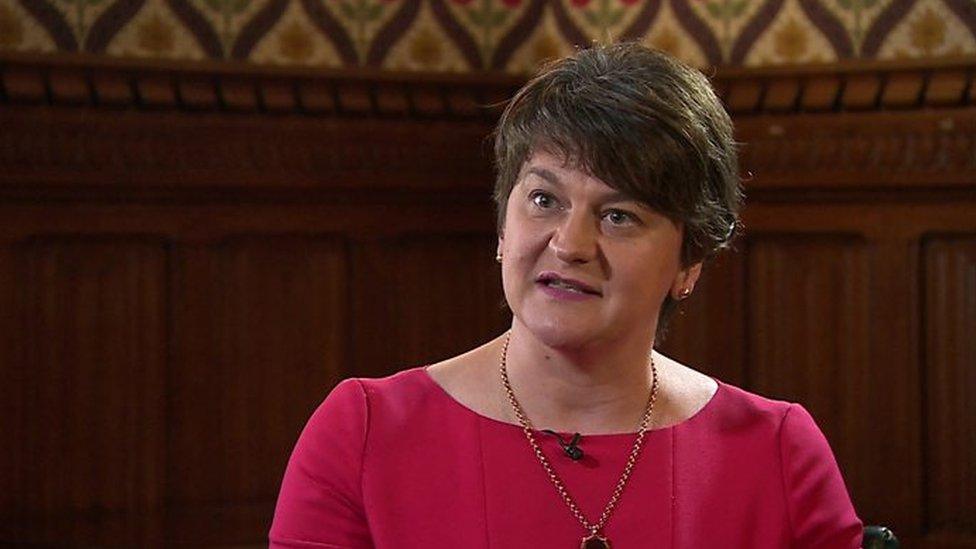Northern Ireland haulage firms 'face no-deal disaster'
- Published
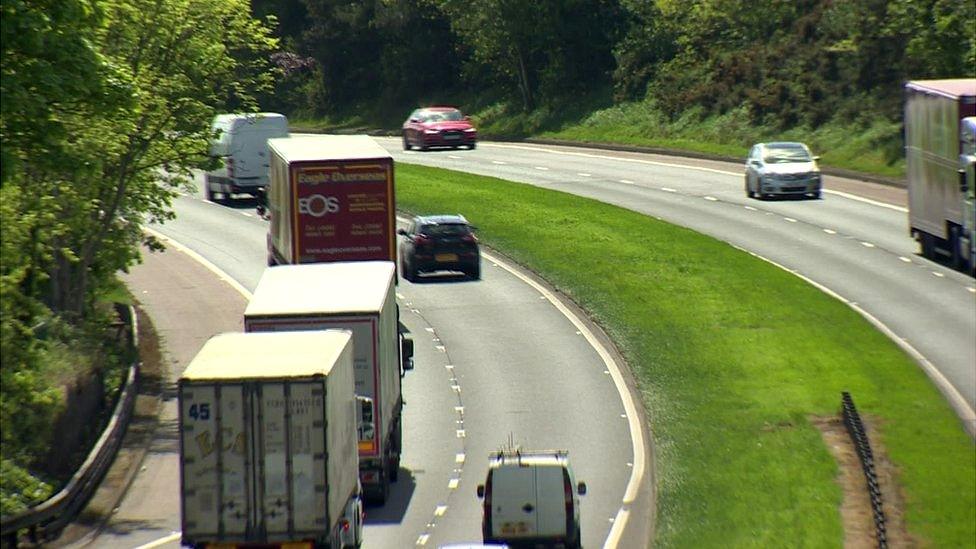
Seamus Leheny of the Freight Transport Association said on average about 13,000 lorries cross the Irish border daily
Northern Ireland haulage firms could face disaster in the event of a no-deal Brexit due to a lack of permits to drive in the EU, it has been warned.
The deadline has passed for lorry drivers applying for licences to drive in Europe after a no-deal Brexit.
The haulage industry says only 1,200 annual permits were offered across the UK, but that 40,000 were needed.
At best, Northern Ireland will get only 60 permits, says the Freight Transport Association in Northern Ireland.
The UK Department for Transport (DfT) had assumed permits would not be needed for drivers to cross the Irish border, said the association's Seamus Leheny.
"I've checked this with the Irish government, they know nothing about any such deal to not require permits into the Republic of Ireland," he said.
"If we need to overcome that, we will need to put the Permits Bill back into parliament and we will be asking MPs to vote to give permits to Northern Ireland."
A DfT spokesperson said: "We do not expect Northern Irish hauliers to require a permit to travel to, or through the Republic of Ireland, and the joint 2017 report with the EU made clear both parties' steadfast commitment to preserving cross-border cooperation on transport."

Permits in high demand
Clodagh Rice, BBC News NI business reporter
The permit system doesn't acknowledge companies who cross the border into the Republic as it assumes there will be a bilateral deal with the Republic of Ireland.
However, until the UK leaves the EU, no such deal could be made.
This makes it difficult for Northern Irish logistics firms to plan for whatever happens when the UK leaves the EU on 29 March.
It could also have a knock-on effect on any firms who use these firms to deliver goods.
The existing legislation doesn't include Northern Ireland, which means that bill will have to go back to Parliament.
In the event of a no deal, that could mean asking MPs in other parts of the UK to agree to give more permits to Northern Ireland.
But permits will be in high demand across the UK.

A spokesperson for the Irish Department of Transport said: "It is not possible at this stage for the department to outline what regulatory regime will be in place in Ireland and the wider EU for UK licensed road transport operators in the various potential post-Brexit scenarios.
"This will depend on the final outcome."
The EU published a set of no-deal proposals in December which dealt with the issue of lorries entering the UK from the EU.
These propose that UK haulage companies will be able to continue carrying goods into the EU provided that the UK confers equivalent rights to EU operators.
However, this is a temporary measure and will end on 31 December 2019. So while the issue may not arise at the end of March, it may well do at the end of December.
Mr Leheny said the best-case scenario for lorry drivers in Northern Ireland would see them receive 60 permits.
Seamus Leheny of the Freight Transport Association
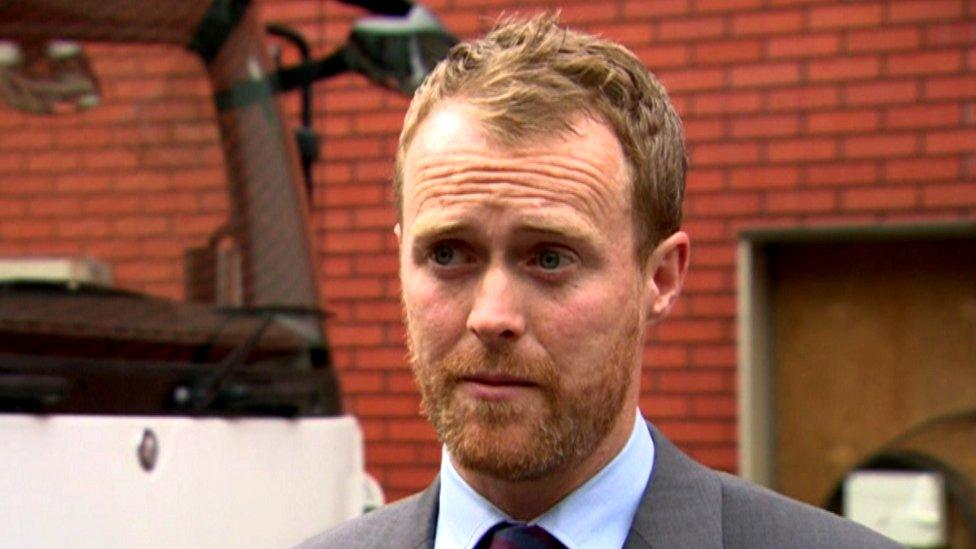
Mr Leheny said some NI firms face disaster in the event of a no-deal Brexit
"I've said to government officials - if we're going to rely on these permits and we're going to get maybe around 60 for Northern Ireland, then don't bother printing them because they won't be worth the paper they're written on," he said.
"On average, we get about 13,000 lorries crossing the border daily. In the north west, on the Coshquin-Bridgend road, there's 800 lorries cross that border crossing per day.
"So 60 permits might just cover two hours worth of journeys across the border on just one border crossing.
"So completely disastrous. If we go into a no-deal Brexit and we rely on these permits, we're signing the death certificate for many logistics companies and obviously a lot of companies rely on the movement of goods."
Mr Leheny said some firms are already taking steps to lessen the impact of a no-deal Brexit.
"When I speak to members right across Northern Ireland, some are setting up businesses in the Republic of Ireland, they're moving vehicles physically into the Republic of Ireland, they're employing staff there so we're obviously losing revenue," he said.
"Other people are looking to maybe recruit staff to deal with EU import/export controls.
"People are trying to mitigate it, but something like this, you simply can't plan for it."
- Published7 June 2018
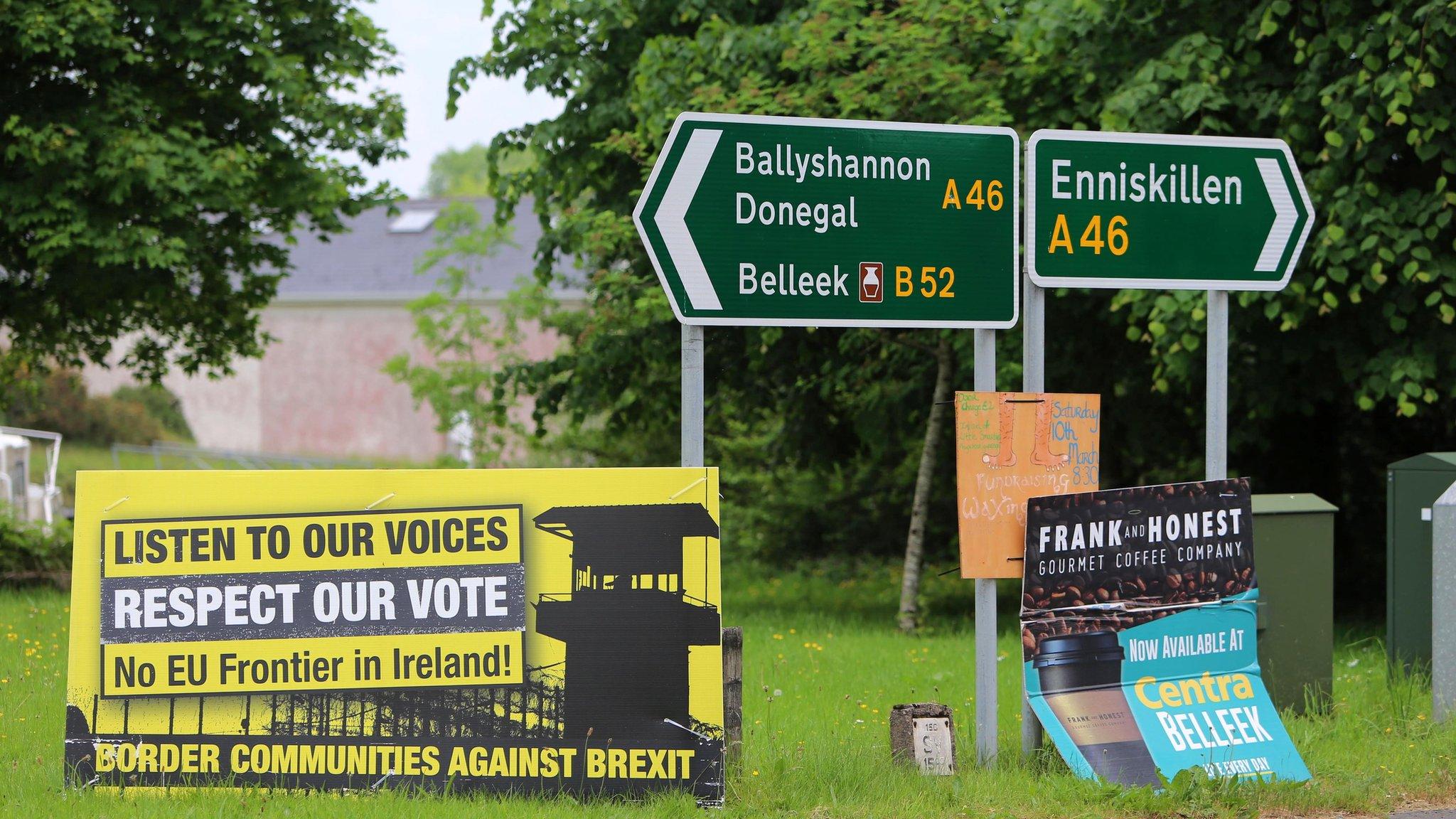
- Published29 March 2018
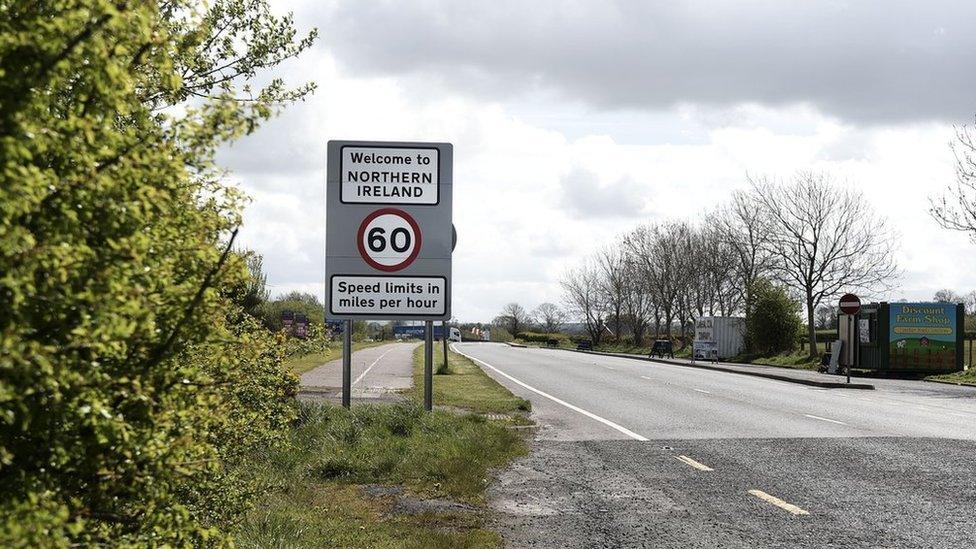
- Published5 October 2018
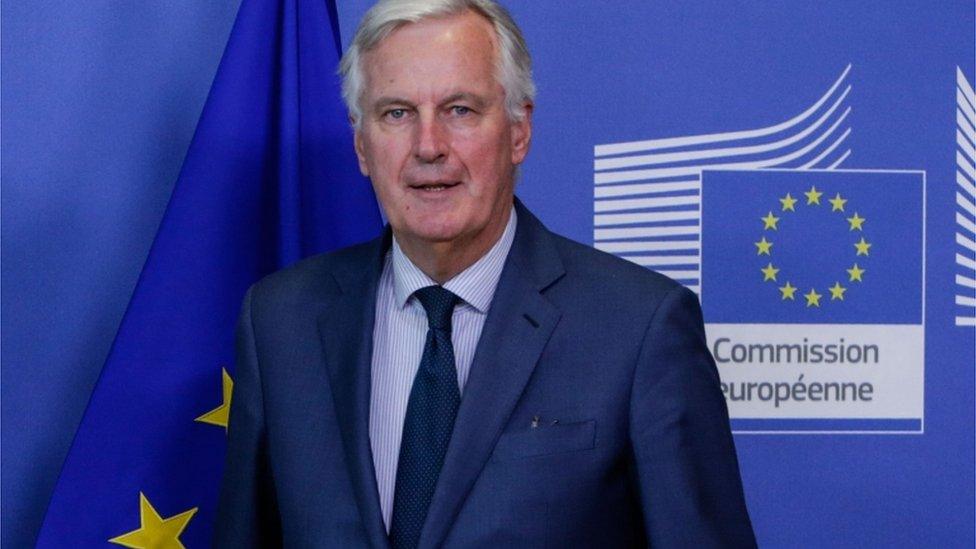
- Published2 October 2018
